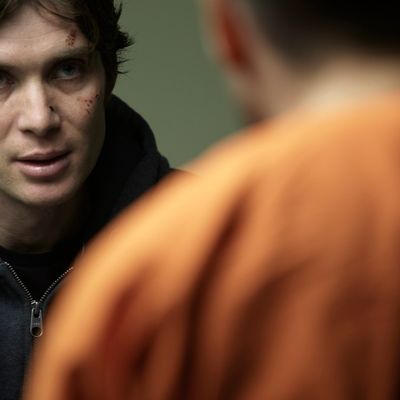
Come back, M. Night Shyamalan, all is forgiven. Rodrigo Cortes’s psychic thriller Red Lights is a genre film that aspires to so much more — tackling Big Questions like the nature of belief — even as it flounders in its own silliness. Veering between tonal and narrative extremes, it’s the kind of film that makes you long for the grim pomposity of something like Signs.
You could be mistaken at first for thinking Red Lights must be a spoof. It opens on paranormal investigators Tom Buckley (Cillian Murphy) and Margaret Matheson (Sigourney Weaver) arriving to study a supposed house-haunting. They quickly unravel it, however, by telling the family’s daughter to quit secretly banging her dresser against the wall and making it seem like the whole house is shuddering with phantoms. Buckley and Matheson travel around “exploring” paranormal activity — that is to say, they uncover frauds. At least, that’s what they do when they’re not teaching a college course best described as Ghostbusting 101. (When we see them in class, they’re revealing all the tricks that supposed psychics might use to fool their audiences, which raises the question of what they cover in their other lessons for the semester.)
These guys are professional cynics, even though they come armed to their appointments with lots of electronic doodads and readers and whatnot; are they actually expecting to discover something? But here comes their biggest challenge yet: An infamous blind psychic named Simon Silver (Robert De Niro) has reemerged and is playing to sold-out auditoriums, and he looks like he might be the real deal — because apparently there’s no way a blind guy can do all these non-blind things without channeling the dark forces of the universe. (Anybody figure out his secret yet?) Somewhere along the way, Elizabeth Olsen shows up as an eager young student. The film briefly comes to life when she and Murphy interact; they have nice chemistry, which is good because that appears to be the only reason she’s in this movie.
This is a world of absurdly, hilariously high stakes. One psychic/faith-healer that Matheson and Buckley expose is taken away by what appears to be a platoon of police officers; when next we see him, he’s in prison orange. (Watch your back, John Edward!) And when Matheson has an altercation on a TV talk show, it winds up splayed across the front page of the next day’s paper. Cortes’s style is similarly pronounced, but it’s all over the place: Though his camera whooshes in circles around the actors during particularly dramatic scenes, his signature move is the slow, steady, symmetrical track-in, as if he’s made The Shining. He wants to do portent while also winking at us, but Red Lights is not quite demented or frantic enough to work as a goofy nightmare (à la Peter Jackson’s The Frighteners), nor is it controlled enough for us to take it seriously.
This hodgepodge of impulses and styles extends to the acting as well. Weaver’s part seems airlifted in from a different film: Stone-faced and sincere, she’s saddled with a son in a coma and given lengthy monologues about things like the possibility of an afterlife. You actively feel bad for the actress that the drama Cortes has woven around her is so ludicrously shabby. As for Murphy, he has a face that’s so cartoonish he can never really go big; he already kind of is, and he needs directors who keep him subdued and serene, like Christopher Nolan. Here, his angst-ridden torment becomes more laughable the more earnest he gets. A shame, too, because there’s a decent final twist that might have worked even better had we felt invested in this character. De Niro, meanwhile, seems like the only one in on the joke: His main instrument here is his very presence, and he uses it well.
Red Lights borders on so-bad-it’s-good-ness in a way that makes you wonder if it might be an intentional goof — the sort of ridiculously mannered gothic melodrama that the good folks at Hammer Films used to excel at. But crazy movies — good and bad ones — can intoxicate you with their lunacy. Red Lights is merely exhausting; it’s both nutty and self-important. The people behind it seem as if they can’t decide what kind of movie to make. Worse, they don’t seem to be having any fun.





